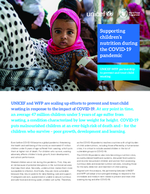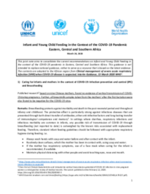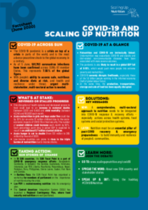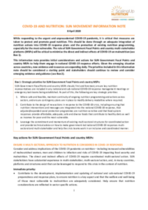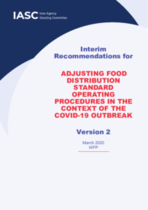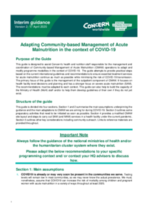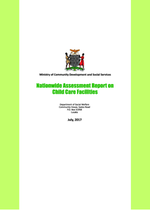Supporting children’s nutrition during the COVID-19 pandemic
This two-page brief outlines the UNICEF-WFP partnership's two-pronged strategy to respond to the immediate and medium-term needs to prevent and treat child wasting during and after COVID-19.

